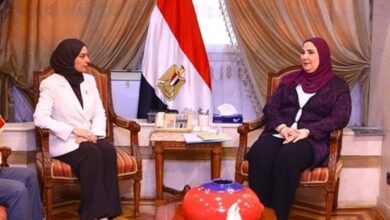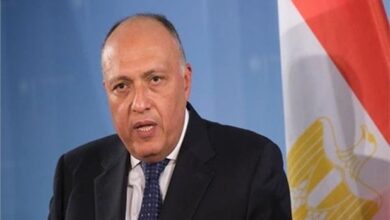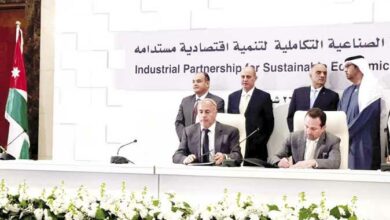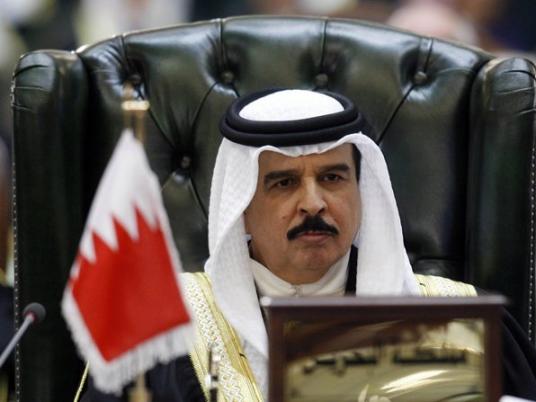Crown Prince of Bahrain Sheikh Salman bin Hamad Al-Khalifa recently made headlines when he announced a call for dialogue with the opposition during his inaugural address to the Manama Dialogue, a regional security conference organized by the International Institution for Strategic Studies, a British think tank.
Only a few hours earlier, opposition leader Sheikh Ali Salman delivered a speech at the first licensed rally since the Interior Ministry imposed a temporary ban on all gatherings, expressing his readiness for talks.
The two simultaneous announcements came shortly after the UK Foreign Office held talks with the Bahraini foreign minister and the opposition at the end of November, which most likely played a part in getting both parties to agree on issuing a call for dialogue. Incidentally, the crown prince chose to single out the UK government for praise in his remarks, leaving many to believe that the US was “snubbed.”
Most importantly, the crown prince’s call for dialogue is the first such public appearance of its kind since April 2011. Back then, amids a popular Shia uprising, the crown prince spearheaded an effort backed by the king to come to a political agreement with Al-Wefaq — the country’s largest Shia Islamist opposition group — that involved reforming the electoral constituencies, expanding the powers of the elected chamber of parliament and instituting a government that, short of being elected, would “reflect the will of the people.”
However, the Bahrain Independent Commission of Inquiry (BICI) report (articles 485-488) highlight that Al-Wefaq’s spiritual leader Ayatollah Isa Qassim vetoed the negotiations, inevitably leading to their collapse.
More than a year and a half since talks crumbled, Bahrain’s political landscape has changed considerably. Sunni groups such as the National Unity Assembly, Sahwat Shabab al-Fateh (Al-Fateh Youth Awakening), the Muslim Brothers and the Salafis have become increasingly vocal in expressing their desire to take part in any political dialogue between the government and the opposition. The prospect of a bilateral arrangement between the government and the opposition that would not necessarily take Sunni interests into account was a source of concern.
Although Sunnis have been rather acquiescent in the past, they have demonstrated a willingness to take to the streets themselves since the 14 February 2011 protests erupted to demand a greater mandate for security forces to keep street violence at a minimum. In February and March 2011, they organized two massive rallies to express their support for the monarchy, one of which was estimated at an impressive 100,000 people by some sources according to the BICI report [article 367].
Indeed, although reliable figures do not exist, Sunnis are considered a very large and powerful minority that enjoys a significant penetration in the security forces, constitutes a considerable portion of the merchant elite and is capable of soliciting support from sympathetic groups from across the GCC. Recognizing this convenient truth, the government and the crown prince have vowed not to exclude the Sunnis — who can be useful as a counter-balance to the predominantly Shia opposition — from any prospective dialogue.
To further complicate the scene, it is unclear whether or not the opposition would be able to sell any potential political agreement with the government to its constituency. The Shia community appears to be torn between decreasingly popular pragmatist groups such as Al-Wefaq that favor some form of engagement with the government and absolutists bent on overthrowing the Khalifa ruling family, even through violent means. Opposition journalist Lamees Dhaif has eloquently articulated the sense of despair prevalent among proponents of the February 14th uprising. In a recent article entitled “Our Revolution Needs… A Revolution,” she lamented the waning popular movement that has largely disintegrated into a series of nightly violent skirmishes between radical Shia village youths and the police.
Al-Wefaq is certainly conscious of its difficult position. The party’s secretary general, Sheikh Ali Salman, himself admitted to the Financial Times’ Roula Khalaf, “We’re losing the street gradually, especially the youth.” Salman’s words constitute a signal to the government that the time for dialogue is now. Al-Wefaq has clearly come a long way since its position in 2011, when in the heat of the uprising it declared its demands non-negotiable and insisted that dialogue be held in an exclusively bilateral setting with the government alone.
Today, in reaction to the prince’s declaration, Salman speaking to Reuters expressed to his group’s willingness to enter into a dialogue with the government without preconditions, and implied his readiness to talk to other groups in subtle reference to the Sunnis. Although Bahrain’s justice minister has promised that dialogue would be held without any foreign interference of any kind, Salman told the BBC’s Frank Gardner that if backchannel talks fail between Al-Wefaq and the crown prince, he would call upon the British to mediate.
Reformists like the crown prince also have their work cut out for them in bringing hardline elements of the government to the negotiating table. Shortly after the crown prince’s speech, the prime minister’s grandson tweeted, “Honorable citizens refuse to dialogue with traitors!” A Twitter campaign critical of prince’s call for dialogue was launched by cyber-vigilantes and anonymous accounts known for their hardline pro-government views.
Even without the cover of anonymity, an ex-army officer and current member of the appointed Shura council Mohamed al-Mosallam protested the Prince’s invitation, exclaiming in session, “What is the crown prince’s constitutional role to issue a call for dialogue? And where is the prime minister, who is head of the executive branch, in this decision?” Not one day later, the prime minister paid a surprise visit to the elected chamber of parliament during which he reaffirmed the latter’s role and the legitimacy of existing constitutional channels, a subtle attempt at drawing a line in the sand.
Finally, a shy effort to bring together the government, political societies and civil society groups including the opposition has already materialized in the form of a conference on human rights held on Thursday, 13 December at the government’s Bahrain Center for Strategic, International and Energy Studies (aka Derasat) behind closed doors. It is yet unclear what exactly the next step will look like.
It is very easy to be pessimistic, almost too easy, particularly after the failure of two attempts at dialogue between the government and the opposition back in February-March and again in July 2011 to help advance reconciliation. Yet both hawks and doves in the government, the Shia opposition and the Sunni camp ought to be aware that they owe it to themselves, to the dozens of deceased protesters and their families, to the 700 injured police officers and to the rest of us to make it work this time.
Hasan Alhasan is a Bahrain-based political and economic analyst. He is a graduate of the London School of Economics and Sciences Po Paris.




